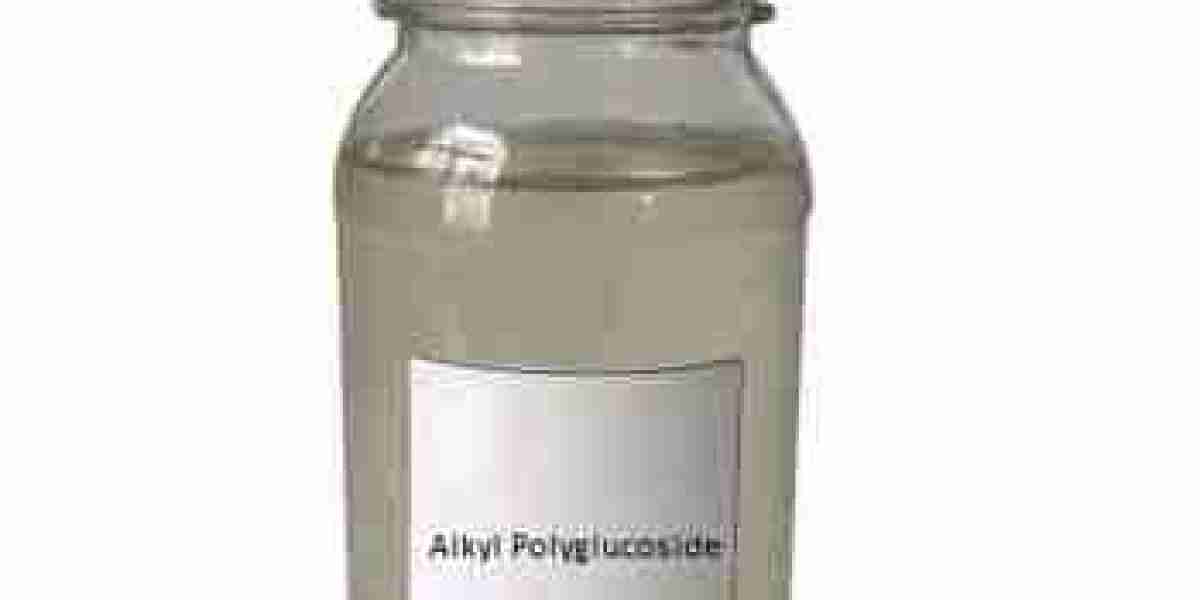The global Alkyl Polyglucosides Market is experiencing robust growth, largely driven by rising demand for eco-friendly and sustainable surfactants in both industrial and household applications. APGs, which are derived from renewable sources such as glucose (typically from corn or sugarcane) and fatty alcohols (commonly extracted from coconut or palm kernel oil), have gained wide recognition for their biodegradability, low toxicity, and excellent cleaning performance. These characteristics make them highly suitable for modern cleaning products that must balance effectiveness with environmental responsibility.
With increasing regulatory scrutiny, heightened consumer awareness, and corporate sustainability commitments, industrial and household sectors are shifting away from synthetic, petroleum-based surfactants toward greener alternatives like APGs. As a result, the APG market is expanding across regions and industries, reshaping the future of cleaning and maintenance products.
Growing Popularity in Household Cleaning Products
One of the most dynamic areas of growth for alkyl polyglucosides is the household cleaning segment, where consumers are increasingly seeking products that are safe for humans and the environment. APGs are widely used in the formulation of:
Dishwashing liquids
All-purpose surface cleaners
Glass and floor cleaners
Laundry detergents
Toilet and bathroom cleaners
Unlike traditional surfactants such as sodium lauryl sulfate (SLS) or linear alkylbenzene sulfonates (LAS), APGs are non-irritating, non-sensitizing, and readily biodegradable, making them ideal for products marketed as child-safe, hypoallergenic, or green-certified. Their mildness and compatibility with other natural ingredients also make them attractive to brands aiming to tap into the green homecare market.
Consumers are increasingly drawn to cleaning products labeled as “eco-friendly,” “plant-based,” “non-toxic,” or “biodegradable.” In response, major companies such as SC Johnson, Henkel, Unilever, and The Clorox Company are expanding their green product portfolios with APG-based formulations, reinforcing this shift toward sustainability.
Eco-Conscious Industrial Cleaning Solutions
The industrial and institutional (I&I) cleaning market is another area seeing significant uptake of alkyl polyglucosides. APGs are being used in formulations for:
Industrial degreasers
Hard surface cleaners
Metal cleaners
Food and beverage plant sanitizers
Textile and leather processing agents
In these applications, APGs provide strong emulsification, excellent solubilizing properties, and stability in high-alkaline or acidic environments. They perform well even in challenging industrial conditions, while also helping companies reduce environmental liabilities tied to wastewater treatment and worker safety.
Industrial sectors are under increasing pressure to adopt greener practices due to tightening regulations on chemical emissions and waste disposal. In the European Union, REACH regulations and the Ecolabel framework have encouraged businesses to replace hazardous surfactants with safer alternatives like APGs. Similarly, in North America, green procurement standards and corporate ESG goals are accelerating the shift toward bio-based ingredients in industrial cleaning products.
Regulatory Support and Eco-Certifications Bolster Growth
Governments and international bodies are playing a pivotal role in encouraging the adoption of environmentally friendly surfactants such as alkyl polyglucosides. Various environmental and safety certifications have made APG-containing products more desirable in both B2C and B2B markets. These include:
EU Ecolabel
USDA BioPreferred Program
Green Seal Certification
EPA Safer Choice Program
Nordic Swan Ecolabel
These labels signify compliance with stringent environmental and health standards, helping brands build consumer trust and qualify for government or institutional procurement programs. For industrial users, incorporating APG-based solutions contributes to regulatory compliance, reduced environmental impact, and improved occupational safety.
Regional Trends and Market Penetration
The European market is at the forefront of APG adoption, driven by progressive regulatory frameworks and strong consumer demand for sustainable cleaning products. Countries like Germany, France, and the Netherlands are home to many manufacturers and end users incorporating APGs into both household and industrial products.
North America is also a key market, with growing awareness about chemical safety and increasing demand for natural cleaning products in the U.S. and Canada. Many American institutions—including schools, hospitals, and government agencies—are prioritizing the use of green-certified cleaning supplies, boosting demand for APG-based formulations.
In Asia-Pacific, rapid industrialization, urbanization, and changing consumer preferences are creating new opportunities. Markets such as China, India, and Southeast Asia are beginning to embrace APG applications in household and institutional cleaning, particularly as local regulations evolve and environmental awareness grows.
Competitive Landscape and Innovation
The alkyl polyglucosides market is moderately consolidated, with key players including BASF SE, Croda International Plc, Dow Inc., Seppic (Air Liquide), Galaxy Surfactants, and Kao Corporation. These companies are focusing on expanding production capacity, improving the performance of APG blends, and offering customized solutions tailored to specific end-user requirements.
Ongoing innovation is centered around:
Developing APG variants for low-foam or high-alkaline applications
Enhancing cold-water cleaning performance
Formulating blends with enzymes and other bio-based actives
Improving APG synthesis from waste biomass to increase sustainability
Additionally, players are exploring palm-free feedstocks and locally sourced raw materials to address growing concerns about deforestation and supply chain ethics.
Outlook and Future Opportunities
As the world transitions toward low-impact, high-performance cleaning solutions, alkyl polyglucosides are poised to become a cornerstone of sustainable product development. Their dual appeal—technical efficacy and environmental responsibility—makes them uniquely suited for both household and industrial markets.
The rising integration of APGs into cleaning, sanitizing, and maintenance products across sectors reflects a long-term transformation in formulation science. With ongoing regulatory support, technological advancement, and consumer preference for greener alternatives, the alkyl polyglucosides market is expected to witness strong and sustained growth in the coming years.




